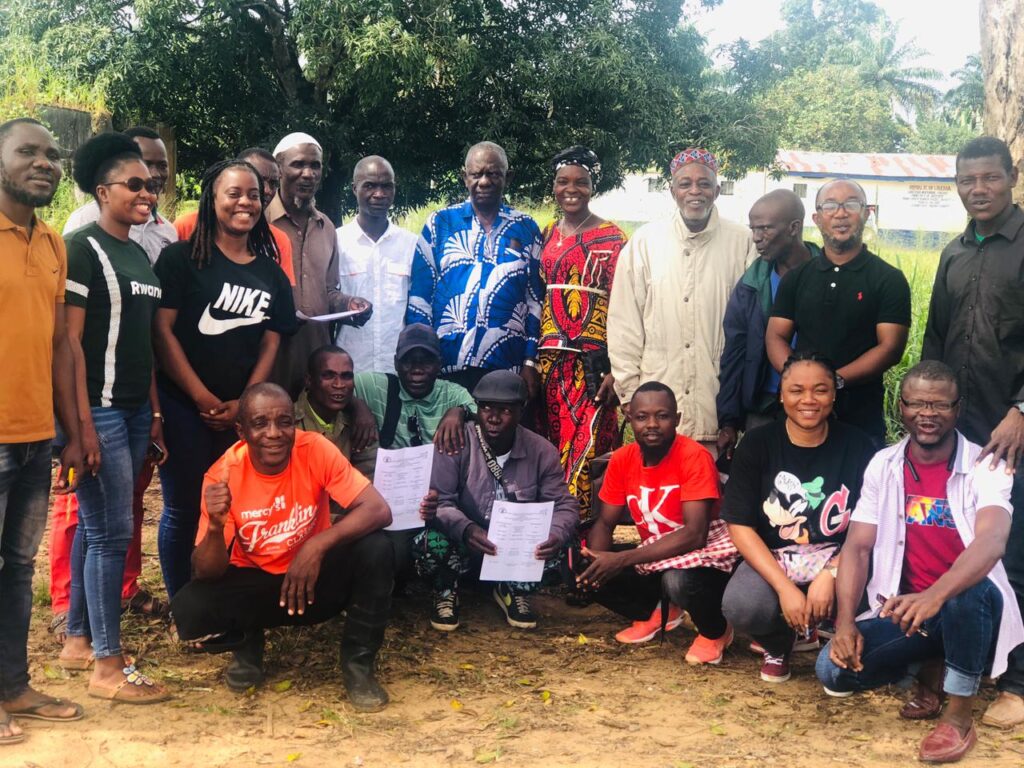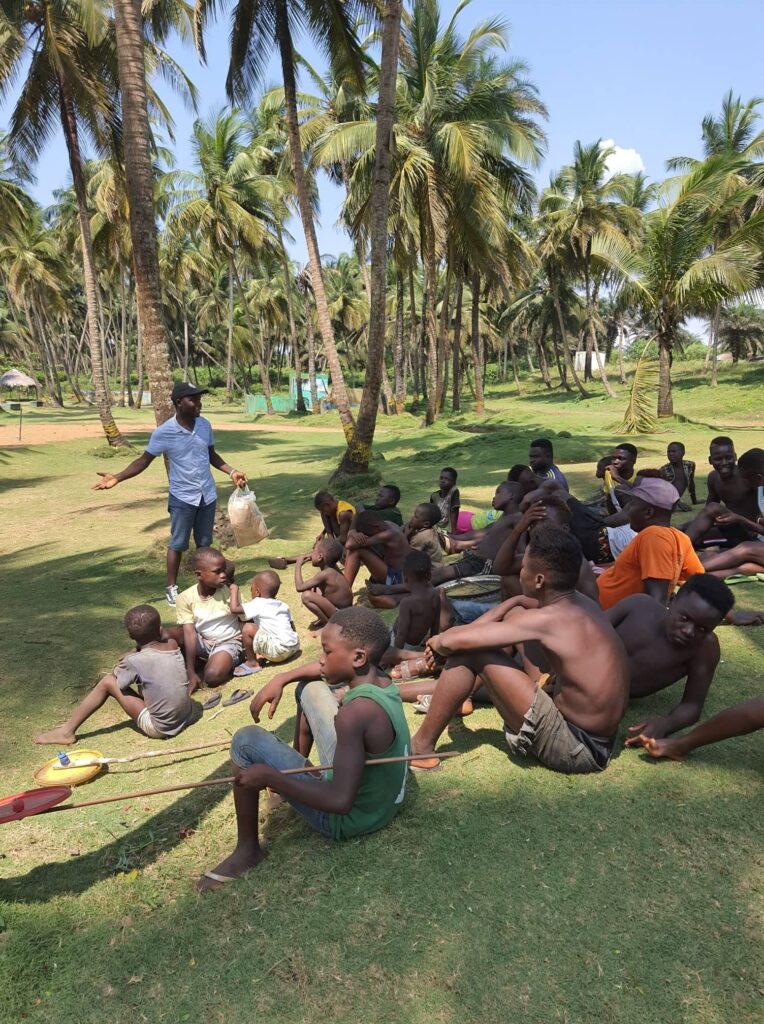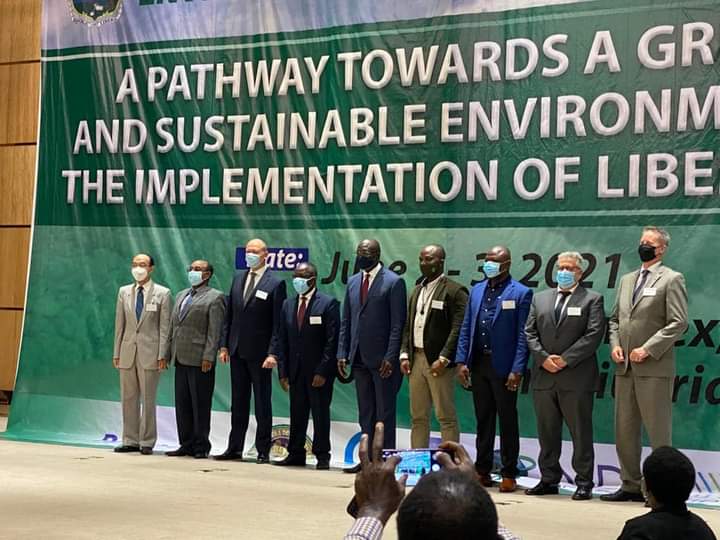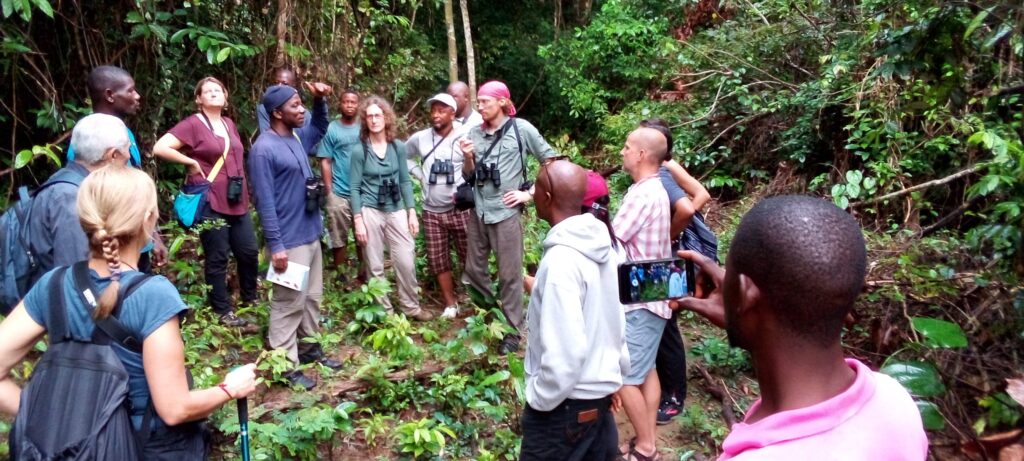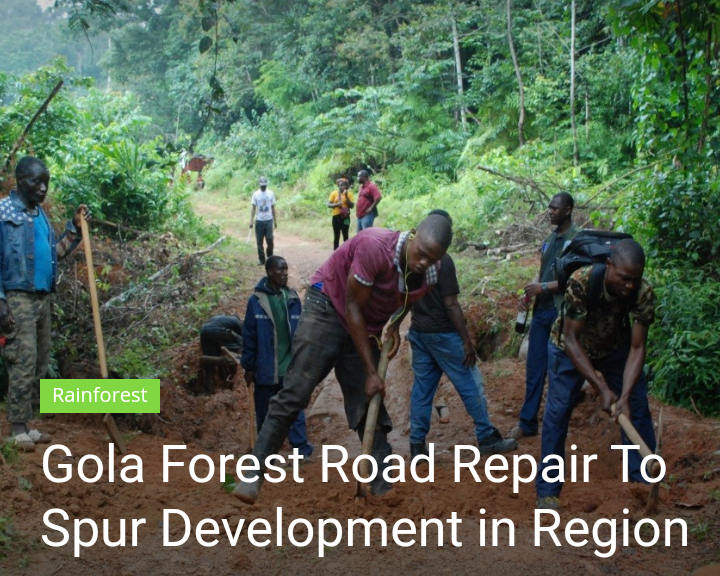Collaborating with communities for a successful outcome
The Society for the Conservation of Nature of Liberia (SCNL) has begun the implementation of the FOLUR Project with its first assessment trip to Northwestern Liberia. The FOLUR Project seeks to promote biodiversity and sustainable food systems for enhanced livelihood opportunities in the North West Liberia landscape through land use planning, restoration of degraded lands, strengthening governance, policies, and market incentives for nationally replicable models of deforestation-free cocoa and oil palm value chains.
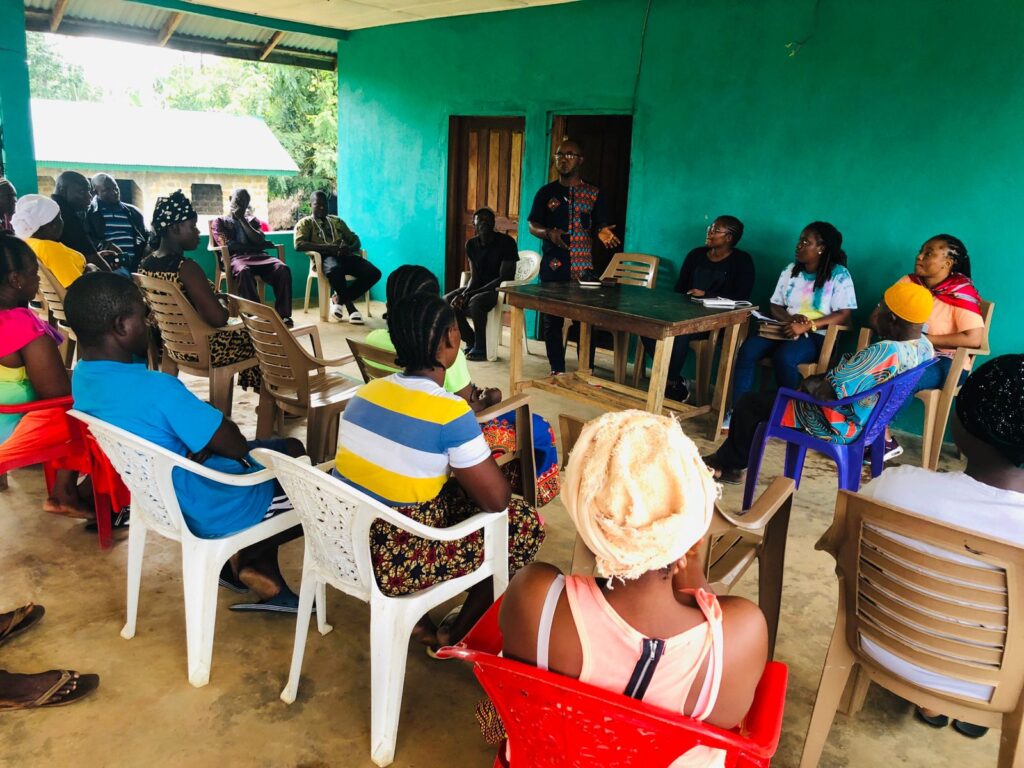
On the 10th of May 2022, the project was launched at the Royal Grand Hotel in Monrovia with national stakeholders present. Everyone was told the nature of the project and what is expected of them for the implementation and success of the FOLUR Project. Also, from the 29th of August to the 6th of September, 2022, there were engagement meetings held in Tubmanburg, Bomi County, Sinje, Grand Cape Mount County, and Bopulu, the Capital of Gbarpolu County with the local government. It aimed to meet with localcommunities, smallholder farmers, commercial agroforestry plantation operators, and civil society organizations in the landscape.
In line with the project implementation under SCNL’s activities, we planned to first do a need assessment as well as identify ‘aggregators and smallholder farmers in the communities within the project landscape (Clans and districts).
On the 13th of October, 2022, the project team of five left for Grand Cape Mount County for a total of 10 days. The assessment focused on two districts; the Tewor and Porkpa districts. In the Tewor district, Passawe and Fahnbulleh Clans were visited, while in the Porkpa District; the Sokpo and Seimavualla Clans were visited.
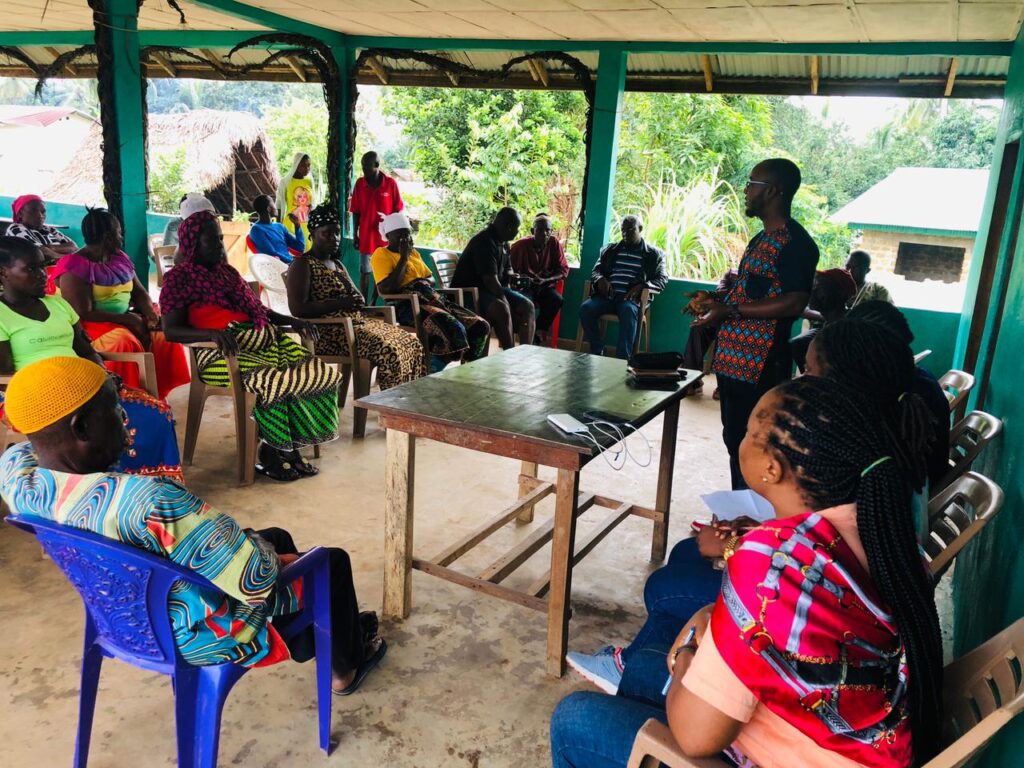
Three meetings were held in Fahnbulleh, Passawe, Sorkpo, and Seimavualla Clans. These meetings brought together the District Commissioners, Clan Chiefs, Youth Leaders, Civil Society Organizations, Women Leaders, Oil Palm and Cocoa farmers, and Cooperatives Leaders. The first meeting was held in Teinii, and participants were from the Fahnbulleh Clan, the second meeting was held in Weilor; participants were from the Passawe Clan, while the last meeting was held in Mano River Kongo which included participants from both Sokpo and Seimavualla Clans. The total number of persons that attended the three meetings were 73 persons.
The SCNL-FOLUR team was welcomed to Grand Cape Mount County and leaders from those clans reaffirmed their willingness to work with the team and to ensure the objective of the project is achieved. An overview of the project was given by the project coordinator, Charlene Jallah Freeman. In her presentation, she highlighted the following: Those collaborating government agencies (EPA, FDA, LLA, LISGIS, and MOA), and their roles in the project, the project duration, the geographical locations which include Lofa, Cape Mount, and Gbarpolu counties, the project objectives. She also talked about the project intervention by county: direct restoration, and the implementation of community land use plans, the four components of the project, the project core indicators, and targeted stakeholders.
Hawa Biddle Dugbeh, SCNL’s Gender and Safeguarding Officer spoke about the grievance mechanisms and the actors involved in handling issues arising from the field. She encouraged the communities to use the grievance mechanism platform in resolving issues relating to gender and safeguarding.
During the assessment in the Porkpa District, it was observed that majority of the farmers are cocoa farmers and there was no oil palm farm observed during the assessment. It was also observed that the local/individual cocoa farmers did not have general farming equipment and chemicals such as: pesticides, insecticides, herbicides, and fertilizers for improved cocoa production. In the communities that were visited Porkpa District, it was observed, many of the farmers have no idea on climate-smart agriculture.
Other activities carried out during the assessment were interviewing individual farmers and also data collection done to gather information on persons with vulnerabilities, and it was realized that the majority of the vulnerable people were mostly elderly persons that have passed the age of 50 and above and their family members were the ones answering questions for them due to their inabilities to answer some key question.

